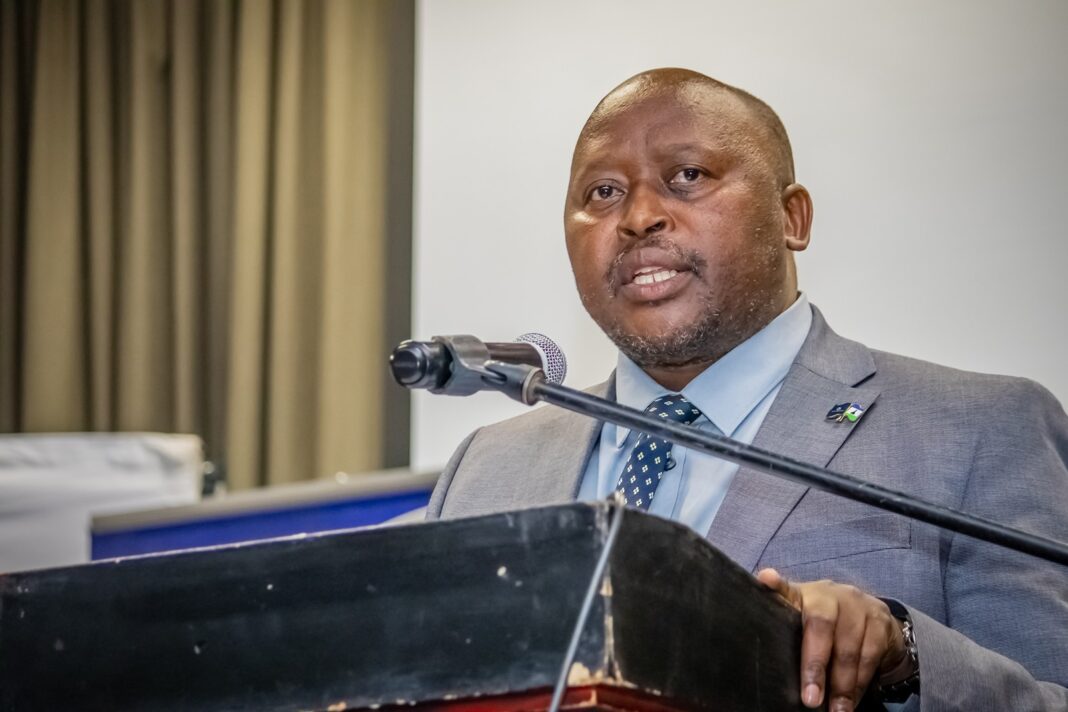By Neo Kolane
The Lesotho Competitiveness and Financial Inclusion (CAFI) Project which was launched this week is intended to increase access to business support services and financial products targeted at Micro Small and Medium Enterprises (MSME’s) and entrepreneurs, especially women and youth.
This project is a World Bank financed initiative that became effective in September 20222 and is due to end in April 2028.
In his remarks, the minister of trade, industry, business development and tourism Mokhethi Shelile who launched the CAFI Project explained that the government through the project will also be investing substantial financial resources towards development of Lesotho’s entrepreneurship ecosystem over the next six years.
Shelile said this will be done through the establishment of state-of-art Entrepreneurship Hub and Seed Financing Facility.
Shelile recalled that businesses of the 21st century are dominated by science and technology; therefore, the entrepreneurship hub will be dominated by tech start-ups.
However, Shelile revealed that the hub will also support businesses across different sectors of the economy with emphasis on the four National Strategic Development II priority areas.
“The CAFI Project will essentially support adoption of digital technologies by entrepreneurs across diverse sectors. The Hub will prioritise women and youth owned enterprises,” he said.
He disclosed that the CAFI project was built on a strong foundation laid by the previous private sector competitiveness project which significantly improved the business environment through government to business digital services.
Moreover, Mokhethi said the need for inclusive and resilient economy has necessitated the development of CAFI project., adding the World Bank has supported various private sector initiatives in the country and by far is the biggest innovation towards creating a competitive private sector in Lesotho.
At the occasion, the project manager Chaba Mokuku noted that the project is relevant and timely, describing it as a catalyst for the digital economy.
He mentioned that the project was conceptualised during the COVID-19 outbreak to provide an enabling environment for Basotho.
He said the project’s main objective is to increase access to business support services and financial products targeted at SMEs and entrepreneurs, especially women and youth.
He noted that this objective will focus on three key components thus; enhancing the financial inclusion and resilience of MSMEs, scaling support for entrepreneurship and MSMEs, and Project management and implementation support.
The chief executive officer of Lesotho Chamber of Commerce and Industry Fako Hakane said for the longest time in Lesotho, the private sector has not been given the attention and the recognition it deserves.
Hakane noted that Lesotho has talented entrepreneurs who can be players in the global value chain.
“CAFI through the entrepreneurship hub and seed financing given our start-ups an opportunity to aim high enough to be global players.
“CAFI comes with a very important instrument of helping MSME’s in the event of future emergencies.
“We, therefore, appeal to the government to open doors for dialogue with the private sector.
“Regular and open dialogue will help the private sector to play an active role in the development agenda of Lesotho.
“CAFI is definitely a way to go for Lesotho to realize its economic freedom by entrusting its economy in its citizens,” Fako said.









